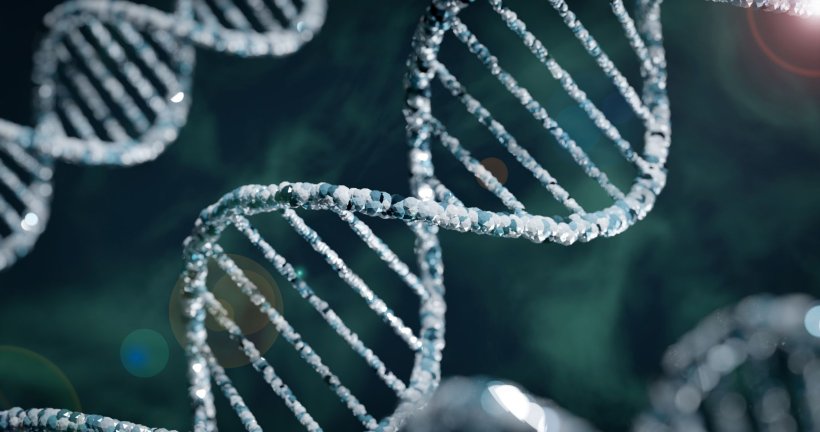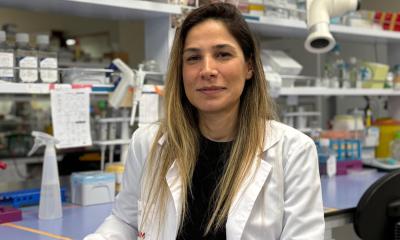
Image source: Adobe Stock/Tirawat
News • Prevention of blood cancer
Research identifies new target that may prevent blood cancer
An international coalition of biomedical researchers co-led by Alexander Bick, MD, Ph.D., at Vanderbilt University Medical Center has determined a new way to measure the growth rate of precancerous clones of blood stem cells that one day could help doctors lower their patients' risk of blood cancer.
The technique, called PACER, led to the identification of a gene that, when activated, drives clonal expansion. The findings, published in the journal Nature, suggest that drugs targeting this gene, TCL1A, may be able to suppress clonal growth and associated cancers.
"We think that TCL1A is a new important drug target for preventing blood cancer," said Bick, the study's co-corresponding author with Stanford University's Siddhartha Jaiswal, MD, Ph.D. More than 10% of older adults develop somatic (non-inherited) mutations in blood stem cells that can trigger explosive, clonal expansions of abnormal cells, increasing the risk for blood cancer and cardiovascular disease.
Since arriving at VUMC in 2020, Bick, assistant professor of Medicine in the Division of Genetic Medicine and director of the Vanderbilt Genomics and Therapeutics Clinic, has contributed to more than 30 scientific papers that are revealing the mysteries of clonal growth (hematopoiesis).
With age, dividing cells in the body acquire mutations. Most of these mutations are innocuous "passenger" mutations. But sometimes, a mutation occurs that drives the development of a clone and ultimately causes cancer.
Prior to this study, which has recently been published in the journal Nature, scientists would measure clonal growth rate by comparing blood samples taken decades apart. Bick and his colleagues figured out a way to determine the growth rate from a single timepoint, by counting the number of passenger mutations. "You can think of passenger mutations like rings on a tree," Bick said. "The more rings a tree has, the older it is. If we know how old the clone is (how long ago it was born) and how big it is (what percentage of blood it takes up), we can estimate the growth rate."
The PACER technique for determining the "passenger-approximated clonal expansion rate" was applied to more than 5,000 individuals who had acquired specific, cancer-associated driver mutations in their blood stem cells, called "clonal hematopoiesis of indeterminate potential" or CHIP, but who did not have blood cancer.
Using a genome-wide association study, the investigators then looked for genetic variations that were associated with different clonal growth rates. To their surprise, they discovered that TCL1A, a gene which had not previously been implicated in blood stem cell biology, was a major driver of clonal expansion when activated.
Some people have a mutation that prevents TCL1A from being turned on, which protects them from both faster clone growth and from blood cancer
Alexander Bick
The researchers also found that a commonly inherited variant of the TCL1A promoter, the DNA region which normally initiates transcription (and thus activation) of the gene, was associated with a slower clonal expansion rate and a markedly reduced prevalence of several driver mutations in CHIP, the second step in the development of blood cancer. Experimental studies demonstrated that the variant suppresses gene activation.
"Some people have a mutation that prevents TCL1A from being turned on, which protects them from both faster clone growth and from blood cancer," Bick said. That's what makes the gene so interesting as a potential drug target.
The research is continuing with the hope of identifying additional important pathways relevant to precancerous growth in other tissues as well as blood, he added.
Researchers from more than 50 institutions across the United States, as well as Germany, Sweden, and the Netherlands participated in the study. Other VUMC co-authors were Taralyn Mack, Benjamin Shoemaker, MD, MSCI, and Dan Roden, MD.
Source: Vanderbilt University Medical Center
13.04.2023











